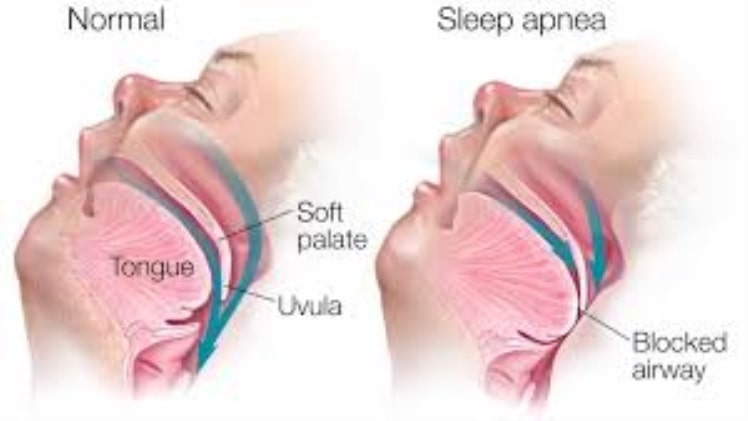Individuals suffering from sleep apnea have difficulty breathing during sleep and can stop breathing for various reasons, such as being sick or having a medical condition.
According to experts, people with sleep apnea are more prone to experiencing inflammation in their bodies, which can lead to various health conditions such as heart attack and diabetes. Understanding the different types can help people find what is causing their sleep apnea symptoms and how to get treatment.
Obstructive Sleep Apnea (OSA)
One of the most common types of sleep apnea is known as obstructive sleep apnea. It occurs when a portion of the throat and mouth is blocked, which makes breathing difficult. For instance, breathing is impossible if the soft palate and uvula both fall against the throat.
If left untreated, sleep apnea can lead to a person waking up feeling like they can’t breathe. Although the body can still try to breathe, it can’t get enough air into the upper airway.
Individuals with sleep apnea are more prone to developing this condition as they get older. For example, it can affect people who are overweight, as well as those who tend to sleep on their backs.
Symptoms of OSA Include:
- Snoring
- Frequent headaches
- Gasping for air while sleeping
- Waking with a dry mouth
- Panicking upon waking
- Trouble concentrating at school or work
Getting treatment for sleep apnea usually involves finding a way to fix the obstruction that causes it. For example, some people find that quitting smoking, taking up a more active lifestyle, and losing weight can help decrease their symptoms. In addition, many dentists can help with sleep apnea issues with oral appliances.
Surgery is another option for OSA and will help address any structural issues with your upper airway by removing any excess tissue or restructuring your airway. Although some types of sleep apnea treatments can help with daytime sleepiness, they do not cure the condition’s underlying cause.
Central Sleep Apnea
Another type of sleep apnea that doesn’t cause upper airway obstruction is central sleep apnea. The neurological process causes this condition. Unlike other sleep disorders, central sleep apnea doesn’t cause the body to try to breathe. Instead, it stops breathing because the nervous system and brain don’t send a signal to the body to do so.
While many people have no symptoms at all, others may notice:
- Sleepiness during the day
- Insomnia
- Shortness of breath upon waking
- Trouble concentrating
- Panicking when first waking up in the morning
There are various causes of central sleep apnea. Some potential causes include sleeping at high altitudes, congestive heart failure, and using drugs. Although other conditions can cause central sleep apnea, they can also be idiopathic. This means that doctors can’t identify the underlying cause of the condition.
One type of sleep apnea that can be caused by congestive heart failure is called Cheyne-Stokes breathing. This condition causes an individual to alternate between hyperventilating and not breathing correctly. Therefore, it is essential to identify the underlying cause of sleep apnea, as treatment will not permanently cure it.
Although a CPAP machine can improve the quality of life for people with central sleep apnea, it can also be used in some cases to treat the condition. For example, adaptive servo-ventilation or bilevel positive airway pressure can be helpful.
Complex Sleep Apnea Syndrome
Although having one type of sleep apnea doesn’t mean that a person can’t have another, complex sleep apnea can be caused by both central and source sleep apnea. However, it can be apparent in a sleep study. Sometimes, it can become evident after the condition doesn’t improve with traditional therapy or a CPAP machine.
Symptoms of complex sleep apnea syndrome are similar to those of OSA. Daytime fatigue, confusion when waking up, dry mouth, and headaches are common symptoms to watch for. Complex sleep apnea syndrome can be treated with various interventions. These include using a CPAP machine and other positive airway pressure devices.
Having sleep apnea can affect a person’s quality of life and increase their risk of suffering from various chronic health conditions. Therefore, the proper treatment can help you deal with your condition. Reach out to experienced doctors who can assist you in choosing a suitable treatment plan.

